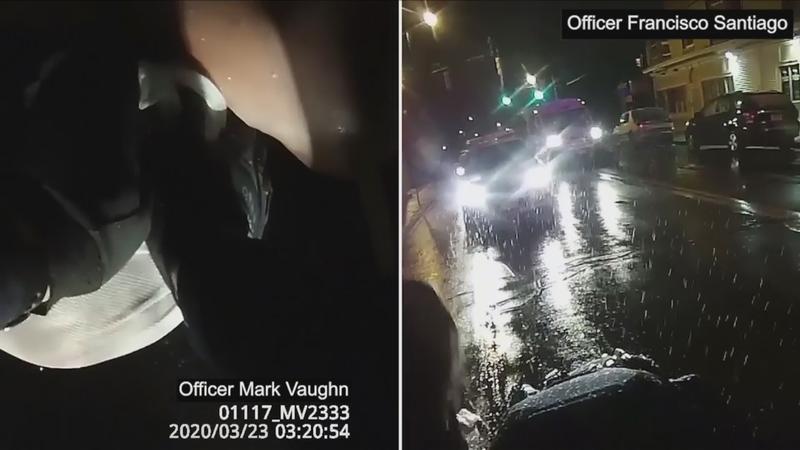George Floyd and Daniel Prude: Similar deaths, similar outrage
[anvplayer video=”4959108″ station=”998131″]
ROCHESTER, N.Y. (WHEC) — The death of Daniel Prude is in some ways similar to the death of George Floyd. Both men were unarmed and handcuffed, and both men stopped breathing while being restrained by police.
News10NBC Anchor and Investigative Reporter Deanna Dewberry looked at what Police Chief La’Ron Singletary was saying this summer, about police restraint.
When George Floyd died, the world grieved.
The reason for the collective outrage was an officer’s knee on the neck of a shackled, unarmed man as his life slipped away. That death launched a broad debate about race, justice and police brutality.
In June, News10NBC Chief Investigative Reporter Berkley Brean asked Singletary this question:

[News10NBC]
Brean: "You talked about banning chokeholds. Could a police officer in the RPD, if they are trying to arrest somebody, put their knee on that person’s neck if they’re on the ground?"
Singletary: "No, that is not a trained technique."
What the public didn’t know then, was two months before the death of George Floyd in Minneapolis, Daniel Prude would also stop breathing as Rochester Police officers pressed his head, neck and chest into the pavement.
In this case, one officer had his knee on Prude’s back as another, with what appears to be full body weight, pressed his hands on Prude’s head and neck.
Officers in Singletary’s department reviewed the body cam video, police reports and security footage and wrote, "Daniel Prude lost consciousness during the incident while officers were stabilizing him on the ground."
They concluded, "The officers’ actions and conduct displayed when dealing with prude appear to be appropriate and consistent with their training."
News10NBC reached out to the Rochester Police Department again Thursday night to ask if Singletary agrees with the conclusion reached by his investigative officers.
We asked them, “Was the restraint used on Daniel Prude an appropriate, trained technique?”
So far, we’ve not gotten a response, but we won’t stop asking the question.